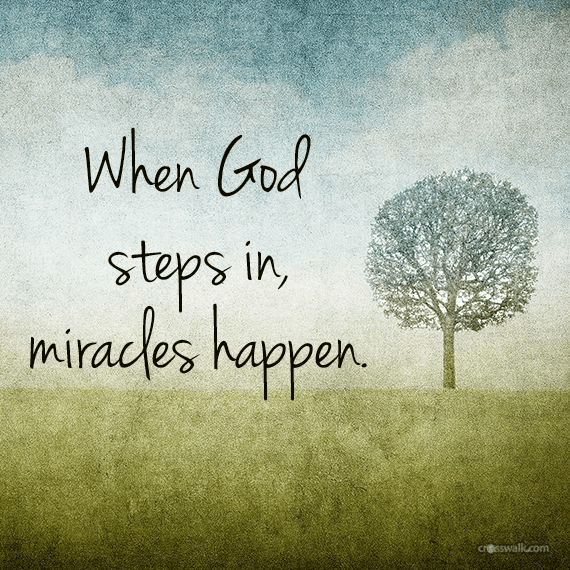Ever wonder if the supernatural really exists?

If you go to church and pray regularly, do you ever wonder if there’s supposed to be more than you’re experiencing? What does God really intend your faith and life to be like? I’m not foolish enough to say that every day ought to be a parade of miracles. Most of the time, even in the Bible, life is as normal as normal can be. Yet both then and now God breaks into our normal world. Biblically that’s normal too. But for too many of us it isn’t.
Enlightenment Legacy
Beliefs and expectations of Christians in wealthy modernized nations like America tend to be as influenced by the legacy of the Enlightenment Period as much as the Bible.
The Enlightenment was primarily a philosophical movement in the 1700s that bridged the Western world’s transition into the modern age. Enlightenment thinkers largely rejected previously held social, religious, and political ideas, and instead emphasized rationalism. Human reason, especially anything scientific, was emphasized as the primary way to gain and test knowledge and truth. This propelled the rise of modern science. Unfortunately, this thinking was unfriendly toward faith in general, especially the supernatural—including prayer, the Holy Spirit, and spiritual experience. Because of this I think the era might equally be termed the “Endarkenment Period.”
Christians unwittingly influenced by this thinking will often say they believe in the Bible yet ignore the implications and promises of stories and teachings from Genesis to Revelation. God is in heaven, we are on earth, and someday death will kick us off the planet and we’ll take permanent residence in heaven. Until then God loves us and is somehow with us. And we’re conditioned to assume our thinking is normal.
Another reason believers don’t give more attention to the supernatural is that it doesn’t work in real life the way it does in the movies. We can’t manipulate or control it. Sometimes we get disappointed with God, or don’t see our prayers answered the way we hope. So we lose interest. Who can blame a person for this?

God’s Legacy
I won’t blame anyone. But I will say that if we’re serious about following Jesus, we need to move past such thinking. When the Bible informs our expectations more than our cultural conditioning does, we can expect things to change. We’ll see that the material world is only a part of reality; angels and demons are very real and active; and God really does do supernatural works in our midst.
What if we let go of our conditioning and strove to be biblical in how we live our lives and how we do church. Read the gospels and Acts for what Jesus and the Christians do. The lifestyles of owning little or nothing and the activities of healing, casting out demons, and trusting God for miracles are so foreign to many of us that we wouldn’t know where to begin. The New Testament clearly tells the church to function by spiritual gifts, but too many function by committee. We have book knowledge, but how much do we practice?
Jesus never taught his disciples to minister through programs; he demonstrated how to minister in the manifest power of God. The New Testament church exploded primarily because of God’s presence and power. But nothing in the Bible or in history says God’s presence and power evaporated.
I can’t offer in this article a full course of how to make all these things happen. And besides, it’s more a matter of giving ourselves over to God than of taking another class. I’m simply appealing for more believers to take God’s legacy seriously. Understanding will follow willingness.
Being God’s Hand
People in this postmodern age are often skeptical and jaded. They won’t respond much to Christian claims, and I don’t blame them. They want to see something work, not just hear about it. They want something real, authentic, that takes them beyond themselves, yet is practiced in a community of people who care about each other. This is exactly the model we see in the New Testament.
I hear a lot, and even teach, about how churches need to reach out in relevant ways to people in our changing culture. But I hear little about how churches need to operate in the supernatural and train people to exercise their God-given spiritual gifts. Isn’t that part of effective outreach?

One of the hard things about operating in the supernatural (and a reason a lot of us don’t) is that we can’t control it. But we’re not supposed to. We can only seek it and go with it when it manifests. This again is exactly what we see God intending in every story of the Bible. He intends that we humbly submit to him and live by faith.
Stepping beyond our conditioning can be hard. But if we’re hungry enough for God, we will. We will have to overcome doubts, unanswered prayer, and testing. We will have to go against the grain of the Enlightenment-influenced church. And when we do, we’ll increasingly live with something better: the life-changing presence and power of God.
Copyright © Peter Lundell, used with permission.
Can God change your life?
God has made it possible for you to know Him and experience an amazing change in your own life. Discover how you can find peace with God. You can also send us your prayer requests.











